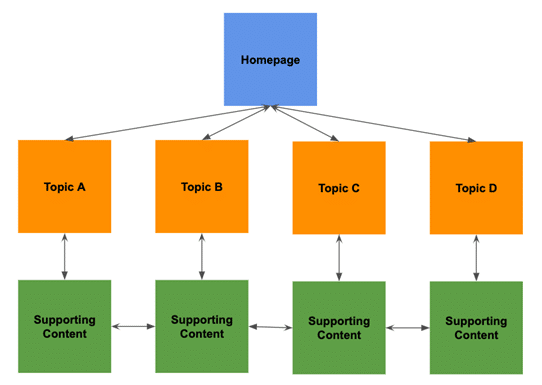Christian blogging is a fulfilling way to utilize your unique skill set and calling. It is also worth considering that producing Christian content comes with a bit of weight, given the subject matter and its potential influence on those who consume it.
Christian blogging is an effective way to share the truths of God’s word, equip the church, and reach others with the gospel. Internet use continues to grow, which means more people are online than ever before.
As of January 2021, there were 4.66 billion active internet users worldwide – 59.5 percent of the global population. statista.com
Almost 60 percent of the entire world’s population uses the internet; however, only 31 percent of the world identifies as Christian.
The world’s largest religion is Christianity, which almost 2.4 billion people practice. – worldpopulationreview.com
Given these numbers, half or more people on the internet are not practicing Christians. There is a massive window of opportunity to use Christian blogging to expand the teaching, practices, and promises of God’s Word.
If you are considering creating content, below are three questions to help you assess the value you can add to the Christian blogging niche. It’s worthwhile to evaluate these questions before diving into Christian blogging strategies.

Should You Start A Christian Blogging Site?
I started blogging in 2013 and wish I knew then what I know now. Blogging is as simple as writing about the things you are passionate about but can be complex when building an audience or ranking in search results. Below are three questions to help you determine if you should create a Christian blog.
3 Introspective Questions About Blogging As A Christian
1. What Type Of Christian Content Will You Blog About?
Christianity is a vast subject with lots of niche topics to explore. Is there a specific aspect of Christianity you want to provide content? Taking time to clarify your focus can help narrow down the content you will create.
Selecting a niche may feel limiting to you; however, it is one of the best things you can do to hone your voice, narrow your topics, and relate to your readers. If you are a first-time blogger selecting a niche can seem complicated; however, this simple process can help you avoid the overwhelming feeling of where to start or which topics to address.
2. What Are Your Writing Gifts?
Are you persuasive, a teacher, an apologist, or an expositor? Understanding the type of writer you are can help keep your writing cohesive and attractive to audiences who prefer your style.
If any of this seems intimidating, it’s best just to start. Don’t worry about all of the technicalities and focus on creating content. Developing your writing skills and a tone for your content will naturally happen the more you publish articles. As you produce more writing, you can sharpen your skill relevant to blogging.
3. Do You Think Blogging Is A Calling Or Hobby For You?
There are many ways that God invites and equips individuals to serve others; blogging is one of them. Below are four indicators to help you assess if you have a calling to blog or use a writing gift:
- Do you consistently write and create content already?
- Is writing a form you seem to return to for crafting messages or sharing ideas?
- Is there an idea or message you continuously think about sharing?
- Have people commented on how your writing has encouraged or helped them?
Whether you feel compelled to create a Christian blogging site or think it is a fun idea, either one is ok. However, if it is more than a hobby, there is a component of faith and obedience to what you believe God is leading you to do.
On top of this, I do not know anyone who writes or creates content and does not want others to find value in it. Sharing content is about helping others; it is a service; however, the internet receives new information every day, and algorithms determine which content populates in search results.
As one of many Christian blogging sites, you can use strategies to improve your content, grow traffic, and provide tremendous value to others. Keep reading to discover ten effective and proven strategies Christian bloggers can use to create gospel-centered content that others can easily find on the internet.
If you are new to blogging or want to learn how to start a Christian blog, visit our step-by-step guide: How To Start A Christian Blog In 7 Easy Steps To Help Others.
You can also experience fulfillment while helping others by creating a Christian blogging platform that offers unique content that honors God and enriches others’ lives.

10 Christian Blogging Strategies That Improve Your Content & Grow Traffic, And Serve Your Audience
1. Write Content That Helps People And Provides Value
When it comes to providing content that others find valuable, Christian blogging shares the same rules that other bloggers. To serve and help others with your writing, you need to address topics and questions relevant to your audience’s needs.
Christian blogging is about providing answers to problems people face. People go to church, listen to podcasts, and follow blogs because they add value to their life with helpful, solution-driven content.
When I started blogging, I wrote about topics I was interested in – it was a good exercise, and some people read it. Still, today, far more people read and subscribe to the content I produce because I try to provide posts relevant to their needs in the niche that I serve.
Content marketing continues to flourish for one very simple reason: it’s what the people want. They don’t want irrelevant messages and products that have nothing to do with them shoved in their face.
They don’t want spam clogging their inbox. People want high-quality, useful, relevant, and engaging content about things that matter to them. – neilpatel.com
Certain principles and facts apply whether you an individual is a Christian or not; one is the reason we consume content. People like, follow, and subscribe to content that brings value to their life.
To create a Christian blogging site that people find value in, content creators should produce content that people are actually searching for and want. To provide this will require research to discover what topics people are interested in within your niche.
2. Perform Keyword Search Analysis To Provide Answers People Are Searching For
Keyword search analysis is research to identify popular terms, key-phrase, and words people use to find answers on the internet.
The information you gain from this analysis will help you determine what keywords your target audience is using, which key phrases they are searching for (and how often), and the language they use related to the content you offer.
For example, one of the keywords for this article is Christian blogging. More than likely, you found this post by searching that exact term or a phrase similar to it.
To find keywords relevant to an aspect of Christianity that your blog is about, use the following tips to analyze which phrases you can target.
5 Keyword Research Tips For Christian Bloggers
- Is the keyword relevant to your niche?
- What is the intent of users searching with this keyword?
- Can you provide new and fresh content unique to the keyword?
- Is there a measurable amount of monthly search volume for the keyword?
- Is the keyword competition low or high?
Using these five questions to analyze a list of keywords can help you identify which keywords are relevant to your blog, have search volume, and have the potential to rank in search results.
It is also helpful to use keyword research tools for finding short and longtail keywords to apply SEO strategies to create your blog posts. Below are five of the most popular keyword research tools you can use to your advantage.
I use and prefer KeySearch. It’s not as sophisticated as other tools, but it has always been effective for me. It is affordable for new bloggers, only $17 per month, and has always provided beneficial results.
Keyword research tells you what topics people care about and, assuming you use the right SEO tool, how popular those topics actually are among your audience. – hubspot.com
Once you know which keywords to target, you can create relevant content around these topics. Understanding and applying this data can substantially boost your blogging efforts.
For even more help, check out the post, 5 Ways To Find The Best Christian Blog Post Ideas For Your Audience.

3. Use SEO Strategies To Help Your Content Rank
Search engine optimization (SEO) are tactics that are useful for Christian blogging too. Optimizing your content to improve your results in search engines can bring floods of consistent, free, and organic traffic to your site, in some cases for years.
SEO is a set of practices designed to improve the appearance and positioning of web pages in organic search results. Because organic search is the most prominent way for people to discover and access online content, a good SEO strategy is essential for improving the quality and quantity of traffic to your website. – moz.com
SEO practices are the same for Christian blogging sites as any other blog. Below are effective strategies for optimizing your content and the entirety of your website to improve its search rankings.
7 SEO Tips For Christian Blog Sites
- Ensure that search engines can crawl your site for indexing
- Create high-value, helpful content
- Optimize blog posts and pages with relevant keywords
- Provide fast page loading times for a great user-experience
- Include keywords in titles, URLs, and meta-descriptions
- Write insightful responses to win google’s featured snippets
- Aim for blog post length to be around 1200 words
Applying these practices will help your content to stand out from other articles. Using these basic SEO principles can provide search engines with the necessary information to evaluate your site’s expertise, authoritativeness, and trustworthiness, essential factors for ranking with Google.
4. Provide Unique Insight To Helps People Understand Christian Concepts And Ideas
The saying goes that content is king in the digital space; however, great content is king today. The world does not need more Christian blogging sites producing high volumes of low-quality content.
To make sure your content is king and serves its essential purpose, select topics that will interest your audience and create a connection with them. Focus on their interests, pain points, and challenges. – socialplanner.io
Your ability as a Christian blogger to provide insightful perspectives concerning issues people care about will be a defining factor in your blog’s success.
The more you can help people cut through the noise and get to the heart of why things matter, how they matter, and help them integrate the insights into their lives, the more people will value your content. – careynieuwhof.com
People will cut through the clutter and discard content that is generic and lacks meaning. As an individual with unique experiences and insight, it’s important you share perspective from your vantage point using the lens of God’s Word as a filter for truth. Doing so will provide authenticity to your content and make it more relatable to readers.
5. Create Trustworthy Content
Unfortunately, the Christian community has a reputation for producing sub-par content. Ill-prepared messages and cheesy plotlines in movies can communicate to audiences that Christians are out of touch with savvy consumers. Below are three simple things Christian blogging sites can do to provide relevant, trustworthy content.
3 Ways Christian Blogging Sites Can Build Trust With An Audience
1. Christian Blogging Sites Should Cite Credible Sources And Links
Preachers are notorious for using other people’s content without crediting the source. In my opinion, doing so is one of the fastest ways to deteriorate trust as a communicator.
When creating blog posts for your Christian site, do your best to provide credible sources and provide links whenever possible to reference your source. This practice not only helps establish your site as an authority in the industry and improve your SEO ranking, most importantly, it will also help you build trust with your audience.
People are more likely to believe what you have to say if they can see that you’re not just making things up – providing credible sources is a powerful way to strengthen and support the validity of your information.
It is an honor to share the learning and wisdom of a colleague, a teacher, or a noted source. To do anything less dishonors the original source and the preacher. – nytimes.com
Citing your sources expresses appreciation to the original creator and exhibits integrity of thought and action as a blogger.
2. Take Time To Edit And Review For Poor Grammar
Most bloggers are not editors; we are content creators, thought leaders, and communicators; however, poor grammar can kill the potential of a great idea. Thankfully, there are tools like Grammarly that can help you with that. Writers can avoid simple mistakes like grammar, spelling, and editing errors with a bit of extra care.
Grammarly is a free online tool that checks your writing for grammar mistakes, plagiarism, and more. It’s an essential tool to have as part of your content creation arsenal, especially if you’re not the best at grammar and spelling or don’t have the funds to pay an editor.
3. Publish Articles Consistently To Create A Rhythm With Your Audience
Often, new bloggers start with enthusiasm and quickly publish a few posts over the first couple of weeks. Over time, their publishing becomes less frequent and unpredictable.
Establishing a manageable publishing schedule will help you stay consistent and prevent your readers from having to guess when you are posting next. Posting once a week or every two weeks is better than having large lapses without new content.

6. Craft Titles That Make People Stop Scrolling
Why do you think pastors toil to create catchy titles for their messages and sermon series? The purpose of a title is to capture people’s attention and draw to your content. Taking time to create thoughtful, unique, and attention-grabbing titles is well worth the effort.
Here’s what you need to know about your readers. They are not readers. Not yet, anyway. At first, they’re scanners. They’re scrolling through your copy, looking for keywords, reading bits and pieces, trying to figure out if it’s worth their time to read.
More than anything else, they’re looking at your headlines. Make sure they’re a compelling invitation to stay awhile. – buildingastorybrand.com
Your audience consumes so much content throughout the day. When they read content online, they are scrolling, scanning for content that will answer the question or solve a problem.
When people use a search engine, they are looking for information, and if you want them to read your blog post, you need a great title.
The 5-Part Formula To Write Clickable Titles For Christian Blogging Sites
1. Ensure the Keyword For The Article Is Central To The Title
The most important thing your title should do is directly describe the value offered within your article. Prioritize the article’s keyword within your title to clearly state the subject of the content.
Using the keyword in the title lets readers know what to expect when they click on your post and will be less likely to bounce off your page.
2. Promise Interesting Results For The Reader
When writing a title and thinking about the content within the article, consider the unique value it provides. As you clarify the help your post offers, use the title to describe the problem you solve.
3. Include Descriptive Power Words That Initiate A Response
The term power word is just another way of describing words that create strong psychological or emotional responses.
Power words are considered to be powerful words because they are persuasive words that push people to take action. – rankmath.com
Words are powerful. The key to using them with integrity is to ensure that your titles accurately reflect the content of your post and to deliver high value.
4. Use Numbers To Convey Value And Organization In The Post
People are more likely to go for titles with numbers in them because it gives them an idea of how much potential value, content, and time it will take if they decide to click on the post.
5. Only Use 7 – 10 Words In The Title
If you notice, Google and other search engines only allow a certain amount of words to populate in the titles for each post. Most of the time, the optimal range to ensure the entire title displays is between seven to ten words and around 60 total characters.
Combining these five aspects will help you create better, more appealing titles for readers. Most people will skip over blog post titles that sound dull or lack description. Creating a sense of urgency and using strong accent words are part of writing better headlines.
You can also use blog headlines and titles to:
- Pose a question
- Announce exciting news
- Indicate how-to’s and explanations
- Appeal to your reader’s hunger for knowledge
These tactics will make your blog posts a lot more interesting. For example, I could have easily titled this post: Christian Blogging Techniques. Instead, with a bit of finesse and time, I eventually came up with 10 Secret Tips To Christian Blogging That Increase Traffic.
Below are a couple more examples of blog titles from this site that use this same 5-part formula to illustrate this practice further.
Example #1:
Ignorable Title: Multisite Church Models
Clickable Title: 5 Successful Multisite Church Models To Strategize In 2022
Example #2:
Ignorable Title: How To Write Church Mission Statements
Clickable Title: How To Clarify Church Mission Statements In 5 Easy Steps
Creating titles that stand-out, promise value, and are clickable will help more readers find your content. Taking a little extra time to craft an excellent title can be the difference between someone clicking on your post or scrolling past it.

7. Use Themes That Are Fast And Purely For Blogging
You can also take your Christian blogging to the next level by using a theme designed specifically for bloggers. These themes are fast, lightweight and typically have built-in features like social media integration and post formats that make it easy to share your content in a visually appealing way.
With such themes, you can focus more on the content of your posts and less on the technical details of getting a website up and running.
8. Create Clean URLs By Specifying The Permalinks
URL structures may be the last thing on your mind while planning a Christian blogging site. However, a clean, straightforward URL can help boost your SEO rankings, so it is in your best interest to consider them before publishing new content.
The URL is a humble and somewhat overlooked part of the SEO equation, but it can contribute a great deal to helping your pages rank well. – searchenginejournal.com
I’m sure you have noticed in the address field, at times, a long trail of letters and numbers following the domain name. Often, this is because creators did not take the time to specify the permalink description.
6 Crucial URL Structure Practices For Successful Christian Blogging:
- Use the primary keyword you’re targeting
- Ensure it is less than or around 75 words
- Use hyphens to separate words
- Avoid using stop words (a, the, is, are, etc.)
- Use lowercase letters
- Redirect old URLs
Source: designpowers.com
URL structure can also impact user experience and page ranking. A well-structured URL is easy for users to remember, understand, and share. It also tells Google what the page is about to rank accordingly.
9. Edit The Meta Description Before Publishing
Most bloggers pay little attention to the meta description on their blog posts, but you should. The meta description is the brief content that populates under a post title in the search engine results.
Writing the meta description for your blog post can ensure that valuable keywords and a call to action are within the content.
3 Tips To Write Meta Descriptions For Christian Blogging
- Use 160 characters to describe the blog post content
- Include the target keyword
- Provide a direct call to action (Click this post for…, Read this article to…)

Think of the meta description as a summary or teaser for the blog post. You have a concise amount of words to capture someone’s attention further and make them want to read more. Therefore, make sure that your meta description accurately reflects the content of your blog post while encouraging the reader to click through.
10. Organize The Structure Of A Christian Blogging Site
Site structure and link building can make or break your website’s ranking in search engines. If you have a messy site structure without a clear hierarchy or your links are not pointing to the correct pages, Google will penalize you. This penalty means that your site will not show up as high in search engine results pages (SERPs), and you could lose traffic as a result.

Source: searchenginejournal.com
A messy, unorganized site will also make it difficult for visitors to navigate your site and easily explore your content. To create an organized Christian blogging site from the start, take time for content planning.
4 Tips To Build A Great Site Structure For Christian Blogging
- Create a list of the topics you plan to cover within your niche
- Organize the topics by creating categories and menus
- Mind map your content to visualize to a structure that makes sense
- Plan for internal linking among relevant content
With a bit of planning, you can save yourself a lot of time in the future by strategically organizing the structure of your site. Doing so will improve user experience, site-ranking, and help you formulate ideas for content.
Christian Blogging Summary
Improving your content and growing traffic for a Christian blogging site is possible. Some of the tips within this post are simple and can immediately apply; others are a little more technical yet manageable with practice.
The most important thing you can do is start. Get writing and publish your first few articles. Study the technical aspects of creating a valuable blog and refer to this post as often as necessary.
10 As each has received a gift, use it to serve one another, as good stewards of God’s varied grace: 11 whoever speaks, as one who speaks oracles of God; whoever serves, as one who serves by the strength that God supplies—in order that in everything God may be glorified through Jesus Christ. – 1 Peter 4:10-11, ESV
If you focus on creating high-quality content that is interesting and useful to your readers, your site will grow. You can help people with your gift and serve others through your blog. Honor God, serve others and produce the best content you can.
Do you need additional help creating compelling messaging for your site or church? Check out our most popular posts:
How To Define Your Church Core Values In 5 Simple Steps
How To Prepare An Effective Message In 7 Steps
How To Prepare An Engaging Message (Sermon) Series In 4 Steps





